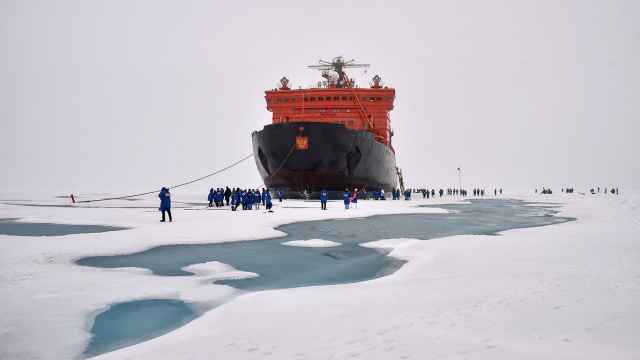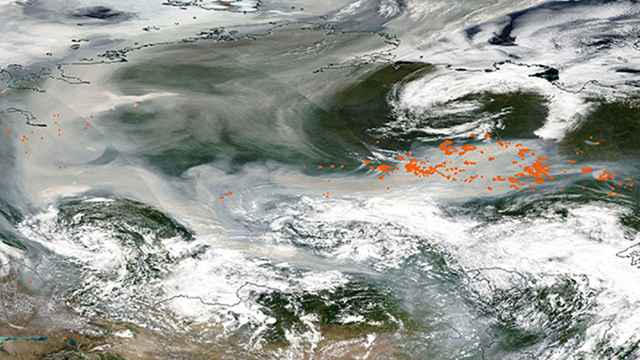Russia in 2020 saw record high average temperatures and a record drop of summer ice cover on its Arctic maritime route, the country's weather monitoring institute Rosgidromet said Thursday.
Russia's average annual temperature last year was 3.22 degrees Celsius higher than the average for the period of 1961-1990 and more than one degree higher than the country's previous record in 2007, Rosgidromet said in a report released Thursday.
"Last year turned out to be extremely warm both in our country and for the planet as a whole," it said in a statement.
Rosgidromet noted that Russia's increasing rate of warming was "much higher" than the global average.
The weather monitoring institute added that Russia's Arctic maritime shipping route, the Northern Sea Route, was "completely free of ice" by the end of last summer, reaching a "record low level".
The report also said that the thickness of the melted permafrost layer that thaws annually is also growing.
While President Vladimir Putin has noted the benefits of warmer temperatures opening up transportation routes like the Northern Sea Route, climate change is a particular hazard for the Russia's infrastructure built on permafrost.
Earlier this week Rosgidromet predicted that the country would see above-average temperatures in the spring, with dry weather in Siberia leading to more forest fires this year.
Devastating forest fires have ripped across Siberia with increasing regularity over the past few years, which the country's weather officials and environmentalists have linked to climate change and an underfunded forest service.
A Message from The Moscow Times:
Dear readers,
We are facing unprecedented challenges. Russia's Prosecutor General's Office has designated The Moscow Times as an "undesirable" organization, criminalizing our work and putting our staff at risk of prosecution. This follows our earlier unjust labeling as a "foreign agent."
These actions are direct attempts to silence independent journalism in Russia. The authorities claim our work "discredits the decisions of the Russian leadership." We see things differently: we strive to provide accurate, unbiased reporting on Russia.
We, the journalists of The Moscow Times, refuse to be silenced. But to continue our work, we need your help.
Your support, no matter how small, makes a world of difference. If you can, please support us monthly starting from just $2. It's quick to set up, and every contribution makes a significant impact.
By supporting The Moscow Times, you're defending open, independent journalism in the face of repression. Thank you for standing with us.
Remind me later.






